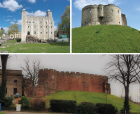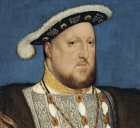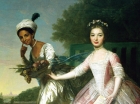Making knowledge secure
While much has been written about balancing and blending types of substantive content, much less has been written about ways of ensuring that pupils do actually gain the knowledge that such planning intended them to have. On the other hand, this issue can surface indirectly in articles on planning, especially where the focus is on how one layer of knowledge can be used to accelerate assimilation of another. For example, articles on drama are often efforts to embed a story or make it memorable. Articles arguing that it’s a good idea to ‘teach this kind of thing before that kind of thing’ are effectively showing how one kind of knowledge manifests itself in another context. So there is always more on making knowledge secure than meets the eye! Also, articles why secure knowledge matters (e.g. its effects on wider historical learning) often overlap with articles how to make that knowledge secure in the first place. So if you are looking for what has been written about one, you are also likely to find it in the other. Read more
-

‘Weaving’ knowledge
ArticleClick to view -

Dialogue, engagement and generative interaction in the history classroom
ArticleClick to view -

Move Me On 186: trainee provides little scope for students to use their knowledge in analysis/argument
ArticleClick to view -

Using individuals’ stories to help GCSE students to explain change and causation
ArticleClick to view -

What Have Historians Been Arguing About... medieval science and medicine?
ArticleClick to view -

Deepening Year 9’s knowledge for better causation arguments
ArticleClick to view -

‘One big cake’: substantive knowledge of the mid-Tudor crisis in Year 7 students’ writing
ArticleClick to view -

Move Me On 182: thinks that substantive knowledge is all that matters
ArticleClick to view -

Cunning Plan 179: using TV producers’ techniques to make the most effective use of retrieval practice
ArticleClick to view -

‘I need to know…’: creating the conditions that make students want knowledge
ArticleClick to view -

Trampolines and Springboards
ArticleClick to view -

From road map to thought map: helping students theorise the nature of change
ArticleClick to view -

New, Novice or Nervous? 167: Confidence with substantive knowledge
ArticleClick to view -

Move Me On 167: Frames of reference
ArticleClick to view -

Thinking makes it so: cognitive psychology and history teaching
ArticleClick to view -

Cunning Plan 166: developing an enquiry on the First Crusade
ArticleClick to view -

Low-stakes testing
ArticleClick to view -

The knowledge illusion
ArticleClick to view -

Cunning Plan 161: Magna Carta's legacy
ArticleClick to view -

The Power of Context: using a visual source
ArticleClick to view

